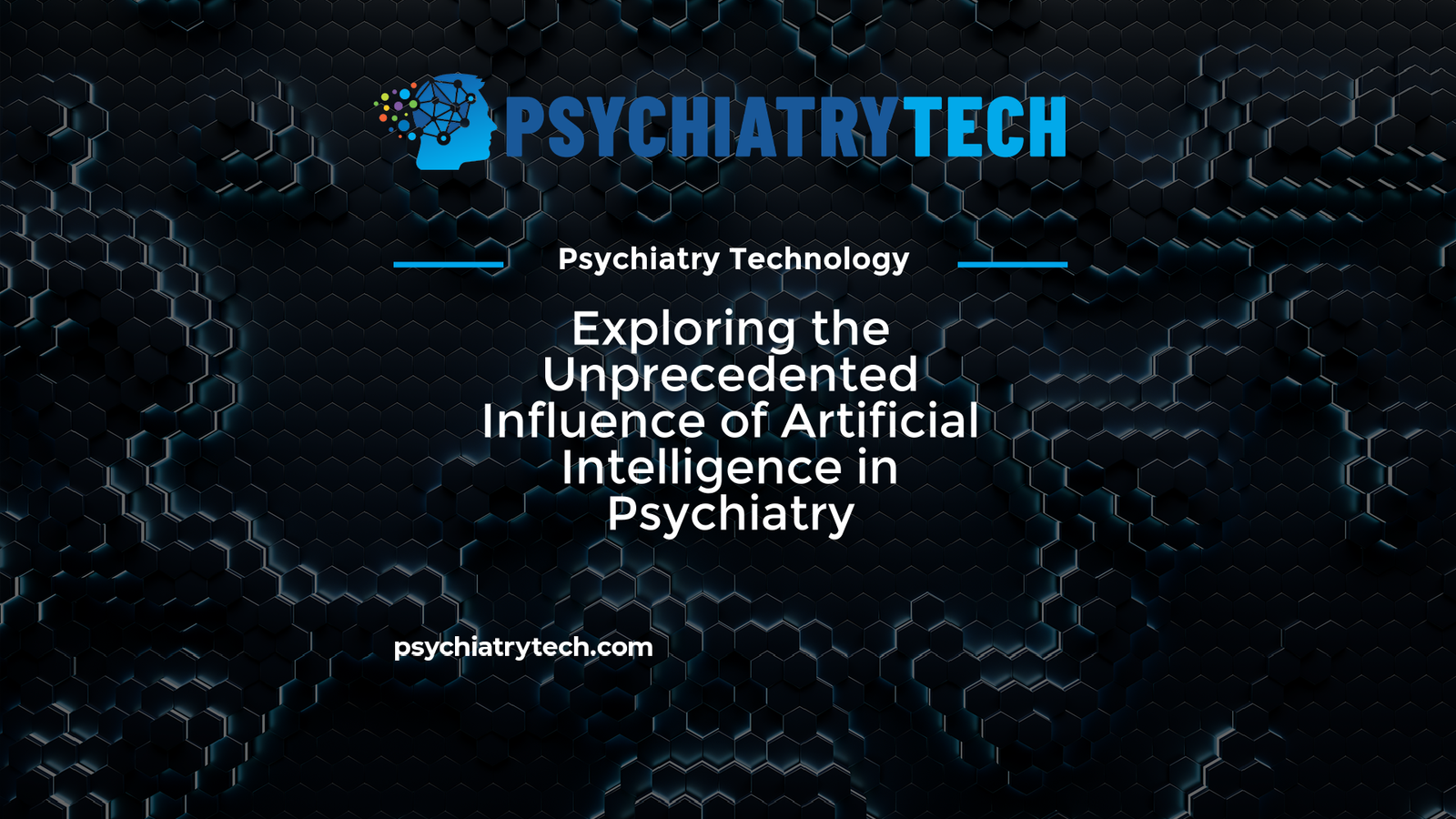Exploring the Unprecedented Influence of Artificial Intelligence in Psychiatry
Artificial intelligence (AI) is a rapidly growing field, with applications that range from the mundane to the extraordinary. One area in which AI is making particularly significant strides is in the realm of mental healthcare. With its ability to process vast amounts of data at incredible speeds and to make decisions based on that data, AI has the potential to revolutionize psychiatry in a myriad of ways.

Discover The World's MOST COMPREHENSIVE Mental Health Assessment Platform
Efficiently assess your patients for 80+ possible conditions with a single dynamic, intuitive mental health assessment. As low as $12 per patient per year.
What is AI?
Before delving into AI’s impact on psychiatry, it’s important to define what it is. At its core, AI involves the development of algorithms that can perform tasks typically associated with human intelligence, such as learning, reasoning, and problem-solving. It relies on a vast amount of data to ”train” the algorithms, allowing them to recognize patterns and make predictions with increasing accuracy over time. In essence, AI is all about trying to program machines to behave in ways that would require human-level intelligence to accomplish.
The Rise of AI in Psychiatry
While AI is still in its infancy in the field of mental healthcare, the possibilities it presents are incredibly exciting. One area in which AI is already being used is in diagnostic assessment. Computer algorithms are now able to analyze a person’s speech and facial expressions to identify signs of mental illness. AI-powered chatbots are also being used to provide therapy in select cases, with some even boasting success rates comparable to human therapists.
However, AI’s potential impact on psychiatry goes far beyond just diagnosis and treatment. Mental health professionals can use AI-powered tools to better predict which patients are at the highest risk of developing depression or other mental health conditions. These tools can also help therapists personalize treatment plans based on each patient’s unique needs. By analyzing large datasets of patient information, AI can help identify which treatments are most effective for certain symptoms or illnesses.
The Benefits of AI in Psychiatry
AI offers a number of significant benefits to the field of psychiatry. One of the most exciting is its ability to process vast amounts of data. By analyzing large datasets of patient information, AI can help identify patterns and correlations that might be missed by human clinicians. This can lead to more accurate diagnoses and personalized treatment plans.
Another major benefit of AI is its ability to work around the clock. Mental healthcare providers are often overwhelmed by the sheer volume of patients they need to see, leaving many people without access to care. AI-powered chatbots and other virtual assistants can provide basic therapy services 24/7, helping to bridge the gap between patients and clinicians.
The Ethical Implications of AI in Psychiatry
Of course, as with any emerging technology, there are also concerns about the ethical implications of AI in psychiatry. One major concern is the potential for bias in the algorithms. Because AI relies on large amounts of data to ”learn,” there is a risk that it could incorporate biases that exist within that data. If unchecked, this could lead to misdiagnosis or the perpetuation of harmful stereotypes and attitudes toward mental illness.
There are also concerns about privacy and data security. As AI is used to process more and more patient data, there is a risk that that data could be compromised, either accidentally or intentionally. Mental health professionals will need to be particularly careful about how they handle patient data as AI becomes more prevalent in the field.
Conclusion
Despite these concerns, there’s no doubt that the rise of AI in psychiatry is an incredibly exciting development with enormous potential. By analyzing vast amounts of data and providing personalized treatment recommendations, AI has the potential to revolutionize the way we think about mental health care. However, it’s crucial that we keep these ethical concerns in mind as we move forward. As we continue to explore the possibilities of AI in mental healthcare, it will be important to remain vigilant and ensure that we’re using this powerful tool in ways that are safe, ethical, and effective.
What do you think the future of psychiatry holds? How do you think AI will impact the field? Share your thoughts on our social media platforms and continue to follow Psychiatry Tech for the latest in psychiatry technology innovations.

